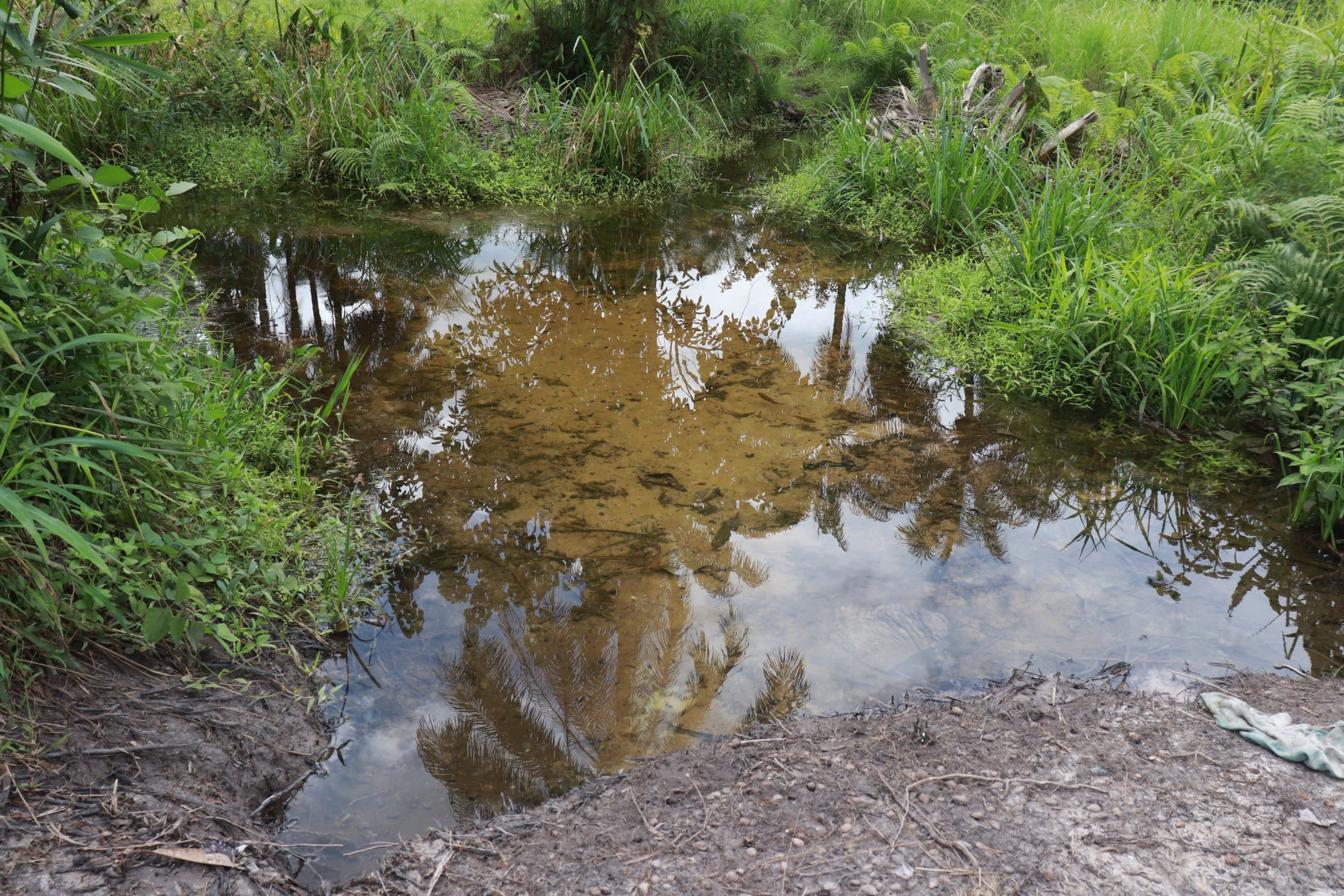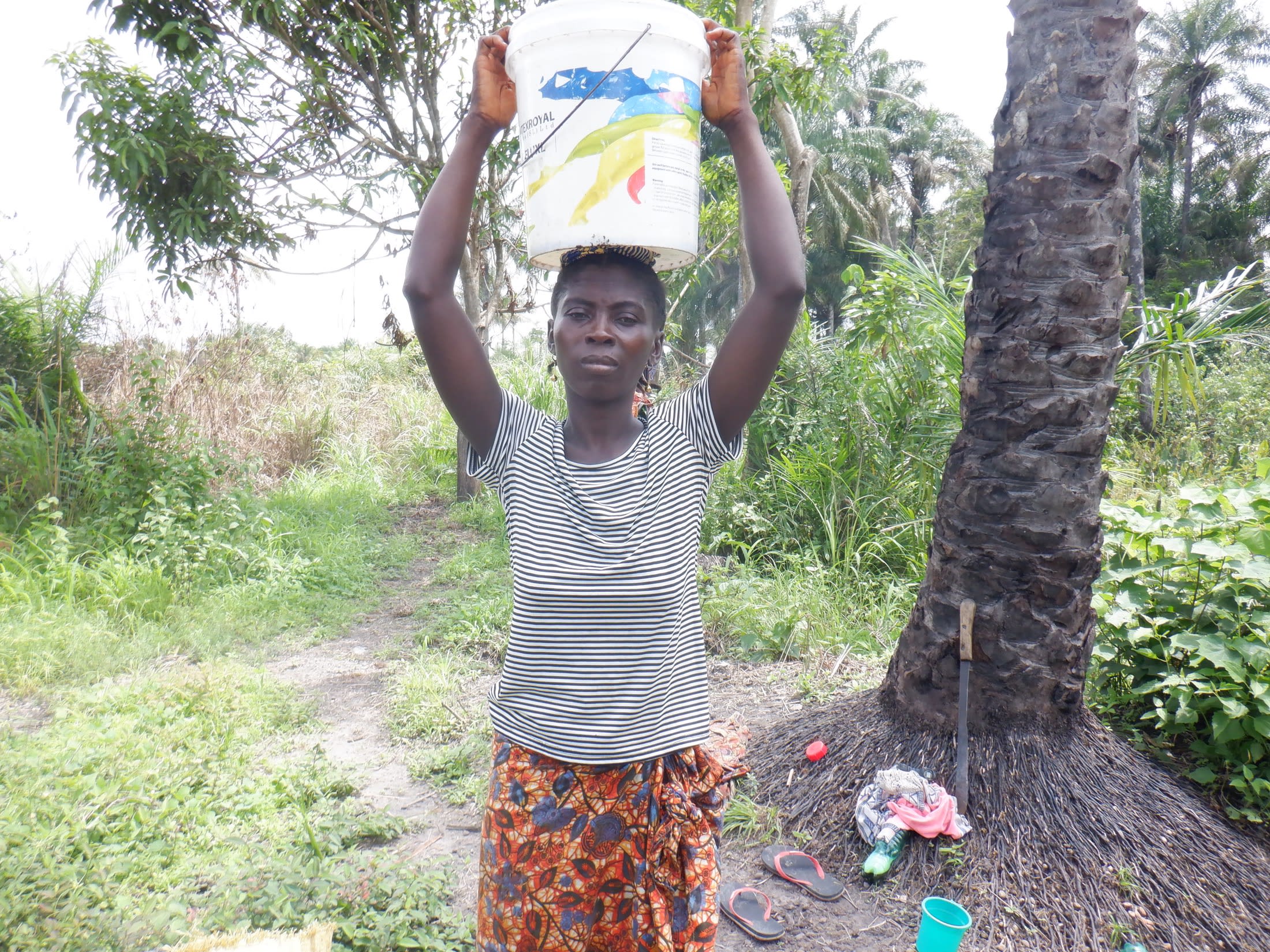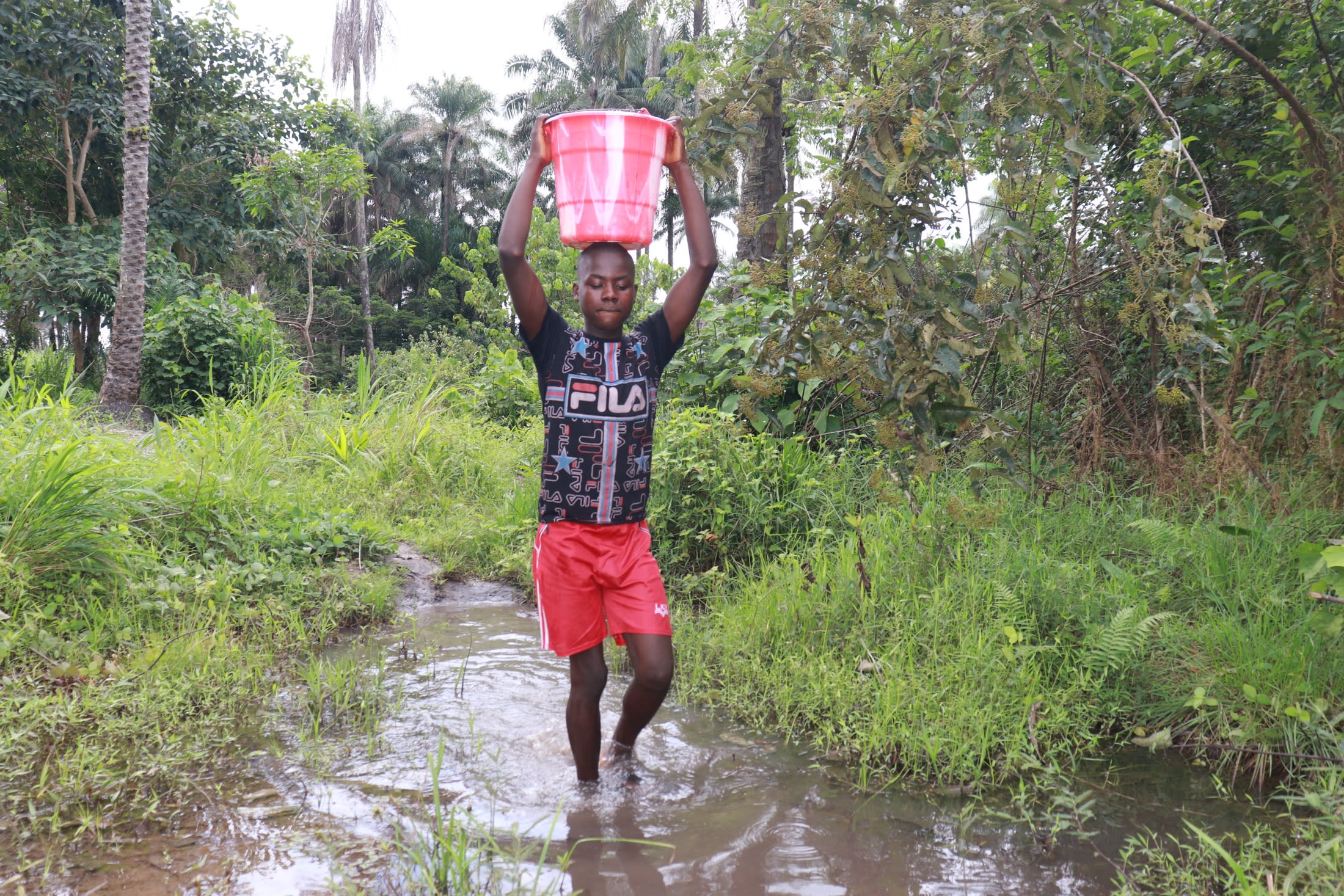Rokula community doesn't have a well. The only water source available for the 103 people in the village is a swamp, which dries out during a few months each year when the rains don't come.

And while the dry season brings drought, the rainy season is not much better, since runoff and debris flow into the pool with each rainstorm, leaving the water opaque with dirt and sediment. People do laundry and bathing in the same water they drink, which leads to multiple health consequences, especially for the community's oldest and youngest members.
Those we spoke to said that every single person in Rokula has been affected by water-related illnesses at one point or another. They experience stomach cramping, skin rashes, diarrhea, and dysentery.
This difficult situation has led some of the people in the community to opt for walking over a mile to the next village to access their well or collecting what rainwater they can from their roofs. But still, they never seem to have enough water, with some households reporting that they make ten trips to the swamp each day, risking poisonous snake bites each time they venture into the bush and leeches dangling from their ankles after they step in to fill their containers.
"One of the [most] difficult tasks that I am always worried to do is fetching water from the swamp," said 36-year-old farmer Futa Bangura (shown below on a trip back from the swamp).

"It is very hard to fetch water from the swamp because of the long distance and bush area."
People in this region usually send their children to fetch water, but Futa doesn't send hers because she fears sending them into the swamp.
"I must try my best to fetch water so that there will be enough water to use at home," Futa continued. "It is hard to work on the farm and return to the house to fetch water before starting to prepare food. It is more difficult to fetch clean drinking water during the dry season. The swamp water would reduce and could not be sufficient for everyone in this village. It is a very difficult task for me."
"For the past years, I face [a] lot of water challenges," said 14-year-old student Abu D (in the photo below standing in the water source).

"[The] water situation in my village affects me [greatly]. The swamp water in the village is not enough, and it is not pure to drink. Every morning, I go to the swamp to bathe, then fetch water [and] return home. I usually go to school late because I must fetch water before going to school. The road to the swamp is far, and it is not easy for me. Also, the school [I] am attending is far [away], so it is not easy to walk to and from. After school, I have to fetch water to launder my uniform, then later join my mother to do work. I would be very happy if this project digs a new water well in my community."
What we can do:
New Well
Where we will be drilling is centrally located and will relieve many people of the long journey to fetch water and the challenge of accessing clean water.
Our team will drive over the LS200 mud rotary drill rig and set up camp for a couple of nights. Once the well is drilled to a sufficient water column, it will be cased, developed, and then tested. If these tests are positive, our mechanics will install a new India Mark II pump.
By drilling this borehole, TKKK and the surrounding community will be provided with plenty of accessible, clean drinking water.
Training
There will be hygiene and sanitation training sessions offered for three days in a row.
Community members will learn how to make a hands-free handwashing station called the "tippy-tap." We will use these tippy taps for handwashing demonstrations and will also teach about other tools like dish racks and the importance of properly penning in animals. We will highlight the need to keep restrooms clean, among many other topics.
This training will also strengthen a water user committee that will manage and maintain this new well. They will enforce proper behavior and report to us whenever they need our help in solving a serious problem, like a pump breakdown.

 Borehole Well and Hand Pump
Borehole Well and Hand Pump
 Rehabilitation Project
Rehabilitation Project
































